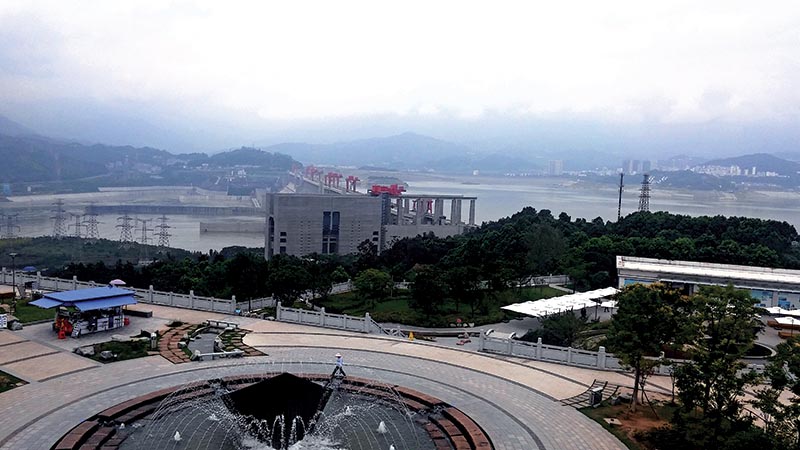Political instability thwarts Nepal’s development goals
Yichang / Beijing, September 7
At a time when Nepal is gearing up to make a ‘quantum leap’ by generating 10,000 megawatts of electricity in the next decade, China boasts of taming the mighty Yangtze River with the Three Gorges Dam Project. It has installed generation capacity of 22,500 megawatts — the world’s largest.
And as the landslides that recur every year during monsoons bring vehicular movement to a halt along the hilly highways in Nepal, the next door northern neighbour has tunnelled through its mountains (75 tunnels with a total length of 61 km) and built massive bridges (148 bridges with a total length of 70 km) to showcase its engineering prowess through the 172-km long Yichang-Badong (YiBa) Expressway.
As the group of Nepali parliamentarians were awed by these two man-made marvels during their recent observation tour to China, the subsequent discussions boiled down to one question: How can Nepal achieve such feats? And the obvious answer: Political will.
Nepal’s Ambassador to China Leela Mani Paudyal, while hosting a lunch for the Nepali delegation, lamented that the country has been unable to capitalise on its amicable ties with the world’s second-largest economy, whereas its other neighbours have experienced huge positive externalities.
“Though every country has its own sets of challenges to overcome, I think the biggest setback facing Nepal (based on my experience there) is lack of political stability, which has resulted in policy ambiguity and thereby development slowdown,” said Jie Tang, practice manager for the East Asia and Pacific Region at the World Bank. He had served in World Bank Kathmandu office for three years as the programme leader.
Obviously an eye-opener to the endless possibilities and the scope for achievements, the timely implementation of the two aforementioned projects also made a glaring paradox to the situation in Nepal, where a majority of development projects fall years behind their conclusion deadline. The construction of $25-billion Three Gorges Dam Project started in 1994 and was completed by 2012 — around six months ahead of cut-off date. Similarly, the construction of $2.2 billion YiBa Expressway started in 2009 and was completed by 2014.
But while Chinese developers swank at their relentless focus on research and development, minimal environmental impact, robust financing capabilities and ability to ensure spillover benefits to the local communities, the performance of many projects in Nepal that are in the process of being implemented or set to be developed by the Chinese have been less than satisfactory. For instance, the construction of 750-megawatt West Seti Hydropower Project, for which Nepal Electricity Authority had granted survey licence to China Three Gorges International Corporation (CTGIC) back in 2012, is yet to kick off.
“The West Seti is quite a challenging project considering the difficult terrain and high seismic risks, but the delay is also because of lack of clear response to our concerns related to the project, like that of tariff, among others,” said an official representing the CTGIC.
Although there can be no one pill for all ills, and developers are bound to be discouraged when their apprehensions are not put to rest, Nepali lawmakers tried to allay the fears of at least one by promising better days ahead.
“Since Nepal is in the very last leg of the years-long political transition, we can expect political stability and policy clarity in the near future,” said Kashi Nath Adhikari, member of the Agriculture and Water Resources Committee (AWRC) of the Legislature-Parliament. “Nevertheless, I assure you that I will convey your concerns to the related officials.”
Adhikari had led the delegation of the AWRC that comprised its members Jamindra Man Ghale, Bikram Khanal, Man Bahadur Tharu, Shiba Chandra Chaudhary, Resham Bahadur Baniya and Under-secretary of the committee Uday Kumar Bhandari.
Despite some lively discussions and pledges made by the lawmakers during the study visit to do their bit in clearing the hurdles that continue to impede Nepal’s development goals, some may doubt the real efficacy of such excursions.
“This is an initiative that we hope will have a positive impact on the policymakers and get the ball rolling,” explained Rabin Shrestha, senior energy specialist at the World Bank, Kathmandu.






